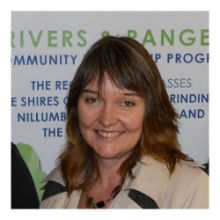Attitude is the biggest barrier
This can see people with disability being excluded through indirect discrimination, as a result of poorly thought through public and private facilities.
In generations past, as a result of the segregation and institutionalisation of people who were seen as ‘different’, most people were quite unaware of the true unique qualities and needs, of individuals with disability. Unfortunately this ignorance and fear sometimes still persists today.
People in the broader community may have had a concerning experience involving someone with disability in the past, and this affects their interactions with others who have disability now and into the future.
And some people have lower expectations of people with disability. When this attitude comes from significant people in the life of a person with disability, it can affect the person’s opportunities as well as their expectations of themselves.
So how can we work towards removing these attitudinal barriers that can have such a negative impact on people’s lives?
Start early to change attitudes
Schools and early years services have a significant role to play in teaching children from a very young age that their friends with disability have unique skills and talents, hopes and dreams, challenges and needs the same as they do.
I had a very heartening conversation with my 7-year old nephew Max recently. He told me about his friend at school who has autism – not that Max knows that, he just knows that Josh does things a bit differently to him and that’s OK.
Hopefully experiences like this will become more and more commonplace in these settings, resulting in the next generation of adults simply accepting diversity as an everyday part of life.
The media also has a great opportunity, and a responsibility, to contribute to changing attitudes towards disability.
We need to see people with disability better represented in all forms of media – including serious acting roles portraying people with disability in positive ways.
This will be the image of disability playing in our lounge rooms and cinemas across the world.
Driving towards the life you want
Fundamentally, there must be many more opportunities for people with disability to be empowered to take control of their lives. This is where the National Disability Insurance Scheme will help in changing attitudes.
People will have greater opportunities to truly be in the ‘driver’s seat’, directing how they get the support that they need to live the life that they want. This in turn will build people’s capacity and confidence in themselves, and increase the expectations of others in regard to what people with disability really can do for themselves.
From my involvement in the community leadership sector, I see huge opportunities for people with disability to gain the confidence and connections to step up into leadership roles, to contribute to legislative and policy change, and to have better representation within decision-making bodies across the country.
And finally as the family, friends, advocates and support workers of people with disability, we have a unique opportunity to talk to others who don’t have these connections and encourage them to challenge their own attitudes.


Join the conversation